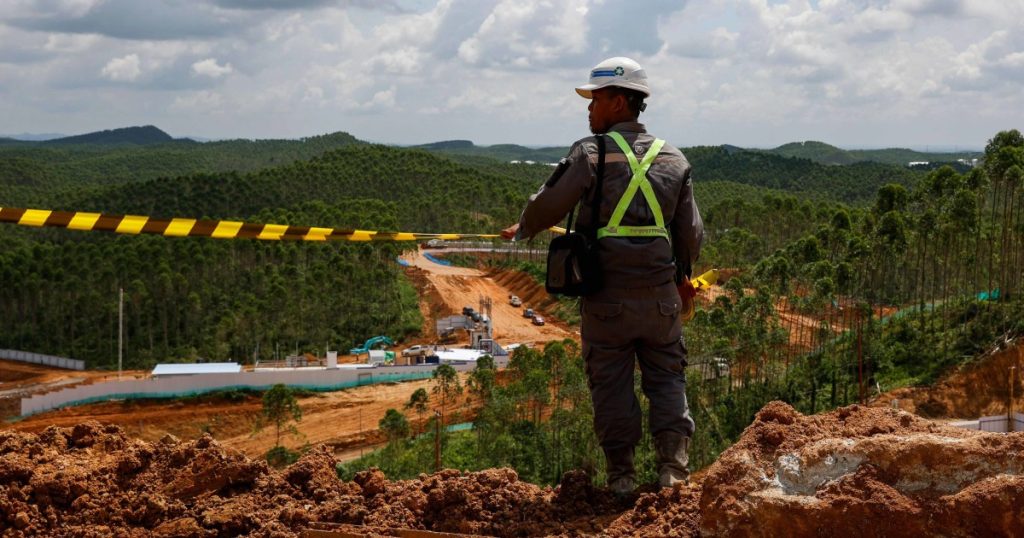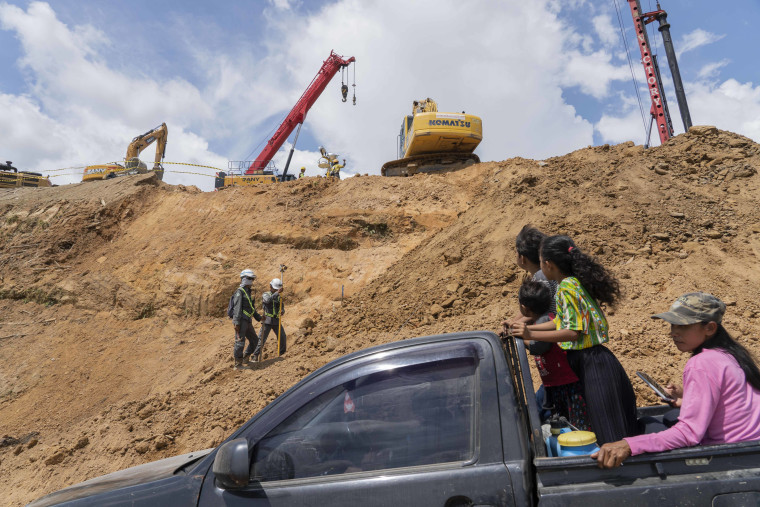
BALIKPAPAN, Indonesia — As the small red car came to a halt, the window slid down and a hand emerged, tossing some yellow crackers on the ground. Seconds later, a group of southern pig-tailed macaques, a monkey species native to the island of Borneo, swarmed the area and devoured the food in an instant.
Until recently, this road in the wilds of Indonesia was seldom used by either people or macaques, an endangered species that spends most of its time in trees. But with its repairs as part of the development of a new national capital, Nusantara, it is drawing macaques who have discovered the road’s new users are a reliable source of food.
“They were rarely seen before that,” said Satwika Satria Prahita, a resident of the nearby port city of Balikpapan.
The Indonesian government says the new capital is necessary because the 11 million residents of the congested current capital, Jakarta, face environmental threats including pollution, sinking land and rising seas. Construction has started on the chosen site 1,200 miles away in Borneo, an island shared by Indonesia, Malaysia and Brunei that has some of the world’s highest levels of biodiversity.
Officials say Nusantara will adopt a “forest city” concept, in which more than 75% of the area is green space, and that it will be carbon neutral by the time construction is completed is 2045. But conservationists worry about the impact on orangutans, dolphins and other wildlife in and around the new capital, citing the public’s lack of conservation knowledge.

“Our big homework now is figuring out how to educate the people,” said Hadi S. Alikodra, a professor in the faculty of forestry and environment at IPB University in Bogor, Indonesia.
Experts have urged the government to protect wildlife from construction workers, as well as the 1.9 million people who are expected to eventually live in Nusantara, which is set to be inaugurated in August next year. Otherwise, there could be some disastrous conflicts between humans and animals, said Muhammad Ali Imron, a wildlife expert at Gadjah Mada University in Yogyakarta, Indonesia.
“And it will lead to biodiversity loss,” he said.
Wiratno, an official with the Ministry of Environment and Forestry, acknowledged the concerns but said the government was making wildlife protection a top priority.
“We will intensively educate the workers and all of the people about conservation and how to live among wildlife in this forest city,” said Wiratno, who like many Indonesians uses only one name.
He said Nusantara’s 75% forest cover would make it an attractive place for animals to live. As a safeguard against conflict between humans and animals, he said, the government is establishing a wildlife response unit and call center.
Some of those potential conflicts can be dangerous. Conservationists say large-scale mangrove clearings and an increase in activity by large ships have already spurred crocodile attacks on local fishermen, putting them in a bind.
“If I can choose, I would rather go fishing in daylight to avoid encounters with crocodiles,” said Hasanudin, a fisherman in the village of Gersik. “But the outcome will be less than doing it at night or before dawn.”

 Latest Breaking News Online News Portal
Latest Breaking News Online News Portal




